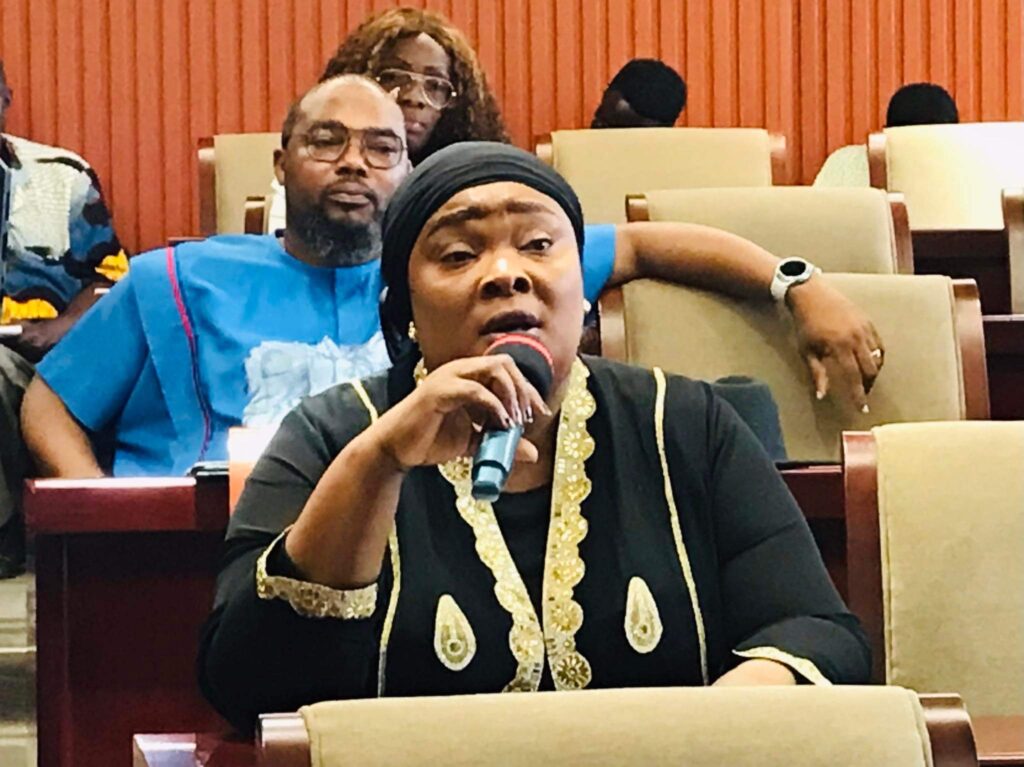Rep. Briggs-Mensah Raises Redflag of Increase in Children Street Selling…As House Cites Gender Ministry and LNP

By: Jeremiah Sackie Cooper& Aminata S. Kromah
Capitol Hill-Monrovia: In order to ascertain information concerning the violation of thousands of children rights found selling in the streets across Monrovia and it’s environs, the House of Representatives have cited the Ministry of Gender and Liberia National Police. They are expected to appear on February 9, 2023 to further provide information relative to the increase wave of children selling in the streets.
The House’s decision was triggered by a communication/complaint from Bong County District 6 Representative, Moima Briggs Mensah raising a red flag on the risk and threat pose to kids selling in the streets.
Hon. Briggs-Mensah communication noted that the increase in the number of children selling on streets is a major threat to Liberia’s growth and development as the future of the country rest upon the youthful population.
Representative Briggs highlighted that children were being hired to sell and guide the locomotion of visually impaired people across several streets across Liberia as a means of earning money for themselves and their families. “Children are now breadwinners in their families, so they continue to be seen in the various streets selling”, She added.
The Salala District Representative at the same time blamed the Ministry of Gender and the Liberia National Police for not fully implementing the 2011 Children’s law of Liberia. “If parents who send their children on the streets to sell are punished by the law, there will be no child selling in our streets. The children are vulnerable to ritualistic killings abuses and violence”, Hon Briggs-Mensah stressed.
In 2011, the Children’s act was signed into law by former President Ellen Johnson Sirleaf in 2012. Article lll of the Children’s law states “every child has the right to adequate standard of living, education, food, water, housing, and clothing, access to medically necessary health care, participate in cultural activities that are in the child’s best interest”.
Article ll, session 5 also states that “No decision or actions can be taken that discriminates against a child on the basis of race, sex, family, color, ethnicity, and a number of other discrimination”.



